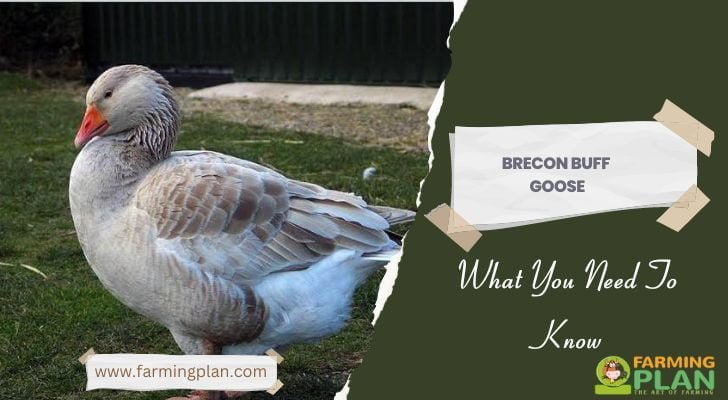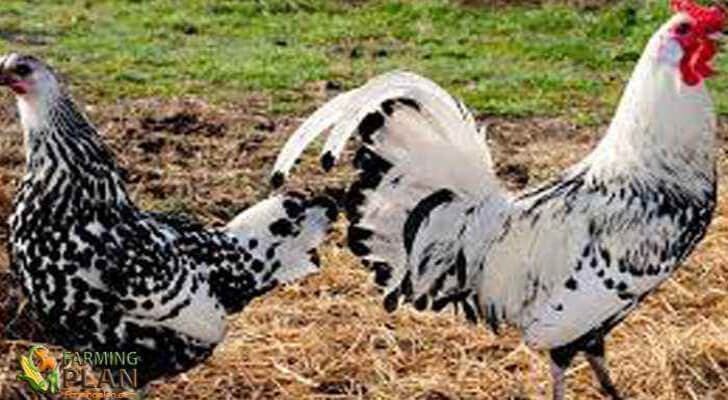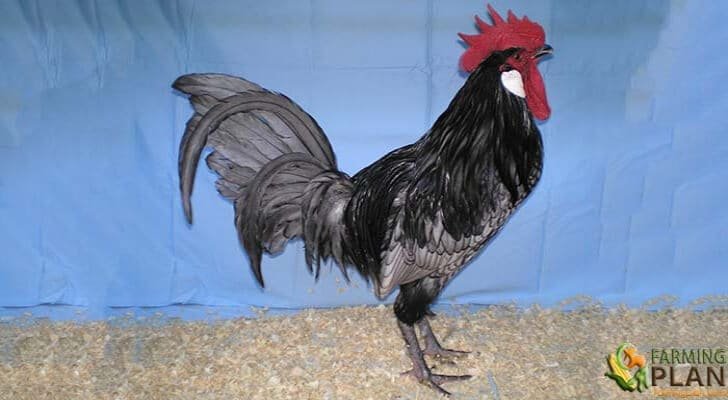Are you interested in raising a Brecon Buff goose? These hardy birds have been farmed for centuries, and today they are still keeping farmers both in the United Kingdom and across the world happily supplied with delicious meat! Whether you’re looking to start a business or simply add a few of these magnificent birds to your farmstead, there are certain things every potential goose farmer should be aware of. In this blog post, we will discuss all the basics behind Brecon Buff Goose farming – from breeding stock selection to daily care tips – so that you can make informed decisions when it comes time to purchase your new feathered family members.

History & Origin
The Brecon Buff Goose is a truly special breed of goose, originating back in Wales. These birds are right at home in cooler mountainous climates and were originally developed as grazing geese. While their exact origin is uncertain, it’s thought that they could be related to the Graylag Goose, which has resided in parts of Europe since early medieval times. The shared popularity between this traditional Welsh breed and people all around the world was evident even after its official recognition by the British Poultry Standards in 1921. Festivals are still held annually to this day to celebrate this cherished bird throughout its native land.
Characteristics
The Brecon Buff Goose is a small, compact breed of goose native to Wales. The geese have incredibly strong legs and feet, and they are excellent foragers, making them well-adapted to the wild environment of their native lands. They have a bright orange bill, a barred brown pattern on their belly, and a light beige hue on the top of their bodies. Their necks are mostly white with small black feathers sprinkled among them. These geese tend to lay fewer eggs than other breeds but are known for being very loyal and friendly creatures if raised from goslings. They make exceptional flock birds or pets as long as they’re handled properly from birth.
Feed
The Brecon Buff Goose is a breed of domestic goose originating in Wales, and they are known to be hearty eaters. They prefer to graze and forage on grasses, wild grains, bugs, and small aquatic critters such as shrimp. These geese require a higher protein diet than chickens; therefore they need more balanced feed containing 18-22% protein. Brecon Buff Gooses love cracked corn or a regular layer mixed with cracked corn which will provide them with their necessary calories. It’s important to provide plenty of free-range time if these geese have access to outdoor grazing areas so that they can get essential natural nutrition like bugs and worms.
Usage
The Brecon Buff Goose is known for its unique appearance, with a striking buff-colored plumage and curved yellow beak. It is a relatively quiet breed of domestic goose, making it popular for use in urban farms or backyard homesteading. This breed also has an impressive laying capacity, producing upwards of 25 eggs each year. Additionally, these fat-rich eggs make excellent table fare while the geese provide plenty of meat. Finally, Brecon Buff Geese have been used in some areas as lawnmowers, keeping the grass short while fertilizing the soil.
Special Feature
The Brecon Buff Goose is a unique breed of domestic goose originating in the region of Wales. With its signature golden-yellow plumage and eyes, this goose stands out in any crowd. As an especially hardy breed capable of withstanding colder temperatures, the Brecon Buff Goose has been used for centuries to add rustic elegance to country estates across England and Scotland. But this breed also packs a great deal of personality, camouflaging its timid nature behind an outgoing and friendly demeanor. Truly, anyone lucky enough to keep one of these beautiful creatures will be rewarded with its many endearing qualities!
Necessary Resources
Brecon Buff Goose have a unique, distinct look with a beautifully colored pattern that easily sets them apart from other breeds of domestic geese. To successfully farm Brecon Buff Goose, there are a few necessary resources required, including a safe and secure area for the birds to roam and nest, sufficient food and water sources, as well as all necessary tools and equipment to properly care for this breed of goose. To make sure they stay healthy and happy, farmers must also know the best practices when it comes to breeding and raising these birds. Fortunately, many of the resources needed can be easily found in any area of Wales where the Brecon Buff Goose is commonly found.
Housing and Shelter Considerations
Brecon Buff Goose are a domestic breed of geese originating in Wales that need a safe and sheltered housing environment to thrive. Shelters for them should be spacious and provide ample space for the birds to walk, stretch their wings, and sleep comfortably. Such housing also needs to provide adequate protection from the elements such as rain, wind, excessive temperatures, and predators. The shelter must offer proper ventilation too, so the geese can remain healthy during hot summer days. Furthermore, these birds prefer to raise their young in quiet and secluded areas without too much human interference so it must ensure they have enough privacy when nesting. As owners of Brecon Buff Goose, one should keep in mind all these factors when constructing shelters for them to ensure they lead happy and healthy lives.
Health and Wellness Provisions for Brecon Buff Goose
Brecon Buff Geese are a unique breed of domestic goose originating in Wales, and proper welfare for them should include several health and wellness provisions. These animals require a balanced diet that includes fresh grass, non-GMO grain, and other nutritious feed to stay healthy. As omnivores, Brecon Buff Goose should also be given regular access to water, with larger bodies of accessible water recommended for the best of their well-being. They need plenty of space to roam around too, as this exercise provides exercise and stimulates mental development. Enrichment items like toys or targets could also be used for their benefit; these activities help reduce stress and avoid boredom. Furthermore, it’s essential to promptly handle any medical issues that may arise as early intervention is key in maintaining the highest quality of life possible for these birds.
Introducing New Flocks to Existing
Introducing new flocks of Brecon Buff Goose into existing groups can be an exciting time for any breeder. This process requires a careful balance, as the old and new groups must have time to get to know each other without disrupting their day-to-day routines. Keeping this in mind, introducing new flocks to existing groups of Brecon Buff Goose is a challenging yet rewarding procedure that will benefit both parties if done properly. With patience and skilled management, a successful integration will ensure that the previous flock and newcomers form a cohesive and thriving group.
FAQ
Are buff geese rare?
Yes, buff geese are indeed rare. Buff geese belong to the family of Branta Canadensis, which is a species of large wild goose native to North America. These birds are generally found during the summer months mating and nesting in northern Canada, Alaska, and northern United States.
Are buff geese friendly?
Yes, buff geese are indeed rare. Buff geese belong to the family of Branta Canadensis, which is a species of large wild goose native to North America. These birds are generally found during the summer months mating and nesting in northern Canada, Alaska, and northern United States.
What is the world’s rarest goose?
The world’s rarest goose is the Hawaiian Goose, also known as the nēnē. It is a native of Hawaii and its population was estimated to be only about 450 individuals in 2019.
Conclusion
In conclusion, the Brecon Buff Goose is an incredible breed that has been around for many years, boasting gorgeous features and a wide array of uses. Whether you’re looking to raise geese as pets, show animals, or for meat production, the Brecon Buff Goose is an ideal choice if you take into consideration all the necessary resources for successful farming. With proper housing and shelter provisions as well as health and wellness requirements adequate when introducing new flocks to existing groups of Brecon Buff Geese, owners will have peace of mind knowing they have one of the most resilient and hearty breeds available on the market today. With strong roots and significant characteristics, it’s no wonder this particular breed continues to endure time while bringing farms across the globe industry-leading enjoyment.


